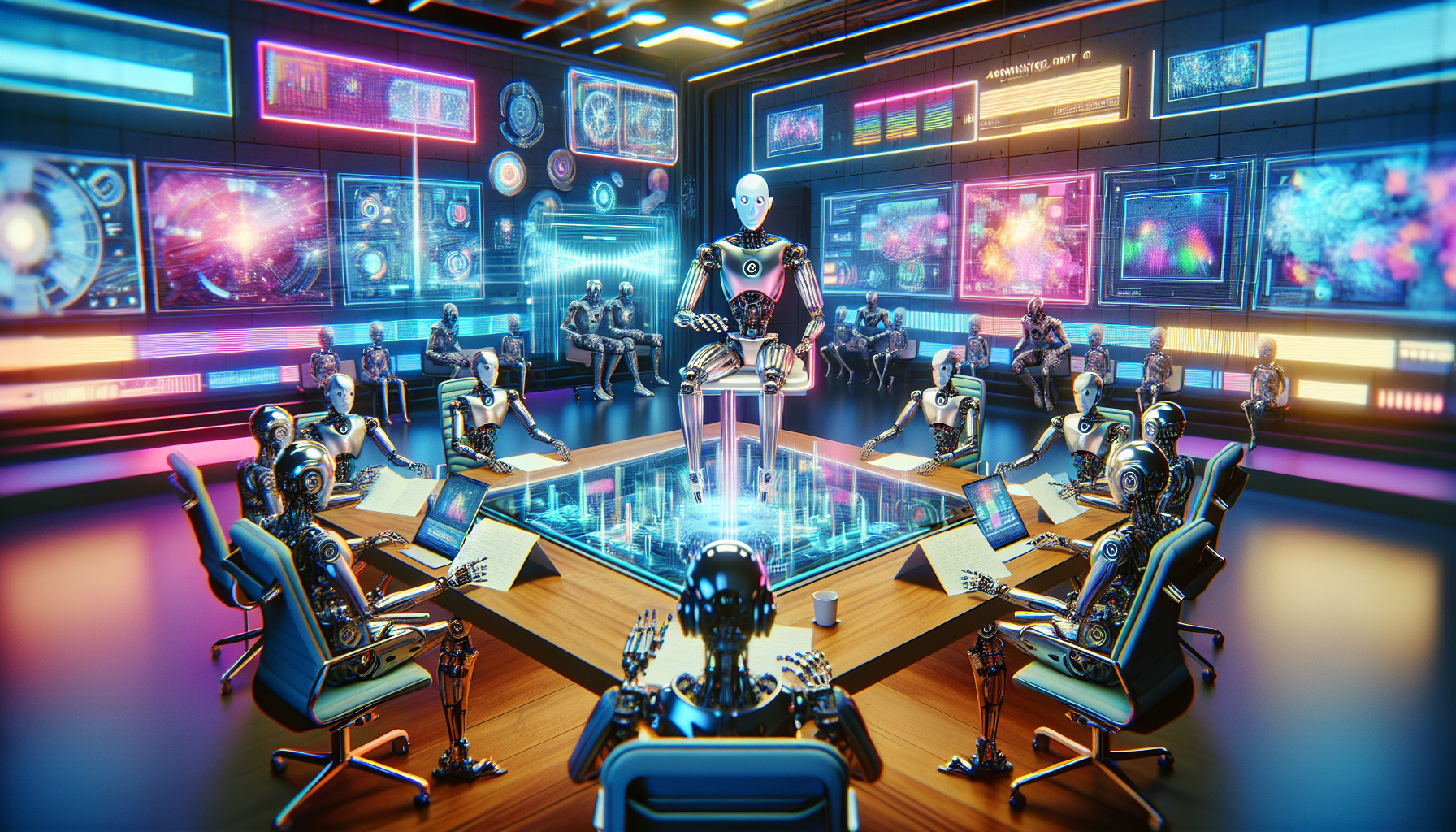
The Hollywood Secret: Robots in the Writers’ Room
Imagine the shock of discovering your favorite animated series, the one that made you laugh, cry, and develop an irrational fear of talking vegetables, was actually dreamt up by a robot. Yes, dear reader, we’re talking about Artificial Intelligence (AI) and its sneaky infiltration into the realm of animated screenplays. Let’s dive into this digital rabbit hole and uncover the role AI plays in crafting those colorful stories that dance across our screens.
Once Upon a Time in a Server Room
Gone are the days when screenwriters hammered away on typewriters, fueled by excessive coffee and existential dread. Enter AI, the shiny new tool with an insatiable appetite for data and a flair for creativity. Using sophisticated algorithms and large datasets, AI can analyze tons of scripts, detect patterns, and churn out content faster than a caffeinated writer during NaNoWriMo.
Creative Collaborator or Plotting Monstrosity?
Despite what dystopian movies have taught us, AI is not here to replace human creativity but to augment it. Picture this: a team of talented writers banging heads together over plot holes in “Animated Hamsters in Space.” Enter AI, suggesting an ingenious twist involving a space cheese heist. It’s like having a brainstorming buddy who never sleeps, never sulks, and can reference every screenplay written since the dawn of 1s and 0s.
The Nitty-Gritty of AI-Generated Magic
How exactly does AI assist in crafting these narrative wonders? Machine learning algorithms, that’s how! Programs like OpenAI’s GPT-3 use deep learning to generate human-like text based on the prompts they’re fed. They can mimic styles, predict story arcs, and generate dialogue that—even to us discerning humans—doesn’t sound like it was written by a toaster on a bad day.
Dialogue: Where AI Really Shines (and Sometimes Stumbles)
Dialogue is the bread and butter of animated screenplays, and AI is becoming a master baker. By analyzing tone, context, and character voice, AI can script conversations that feel genuine. Sure, sometimes it might throw in a line like “The existential dread of a pickle,” but hey, a little human touch can round that out to comedic gold.
Ethical Dilemmas: The Plot Thickens
With great power comes great responsibility, and scriptwriting is no exception. Ethical questions abound: Who gets credit for an AI-assisted screenplay? How do we ensure these algorithms aren’t perpetuating biases from their training data? These are questions worthy of their own dramatic mini-series. Maybe in claymation. AI can help with that too, of course.
Not All Heroes Wear Capes… Or Have Circuits
While advanced, AI still doesn’t grasp human experience, emotion, or the nuanced quirks that make us chuckle or tear up. Enter our tireless (and sometimes neurotic) human writers, who take AI’s groundwork and infuse it with heart, soul, and a sprinkling of existential dread—something even the most sophisticated algorithms just can’t replicate.
The Future: Boldly Going Where No Bot Has Gone Before
What’s next for AI in animated screenwriting? Think of a co-pilot rather than a captain—AI handling the nuts and bolts while human writers steer the ship, ensuring we stay on course to Emotional Investment Island. The horizon is bright, promising, and, who knows, maybe even AI-animated scripts about AI writing scripts.
Behold the brave new world where robots don’t just clean our floors but help write our favorite cartoons. As long as there are stories to tell and quirks to script, AI and humans will continue to weave their enchantment, one binary at a time.






